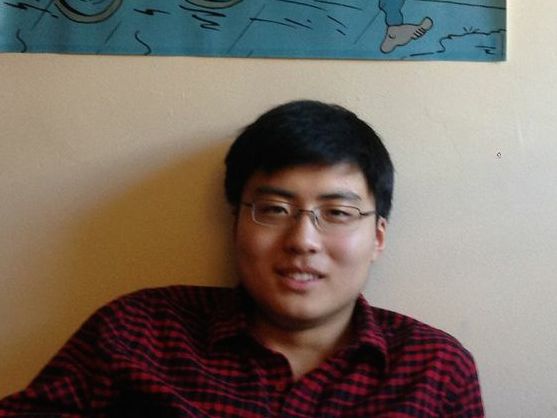
(H/T Angry Asian Man)
By all accounts, Andrew Sun ’16 was a “bright student”, a “humble listener” and a “mentor”. He was well-known on the Harvard campus for his involvement in the Harvard College Faith in Action group, a non-denominational Christian group. So, news of Sun’s death on Sunday evening from injuries sustained from a 7-story fall came as a shock and surprise; more so when the death was ruled a suicide. From the Harvard Crimson:
Sun, an Economics concentrator from New Jersey, died early Monday morning in Massachussets General Hospital, where he was being treated for injuries he sustained after jumping off a Boston building on Sunday. Sun, who was 20 years old at the time of his death, was a resident of Pforzheimer House.
In an email to Pforzheimer House residents, co-House Masters John R. Durant and Anne Harrington ’82 invited students to a community gathering in Pforzheimer on Thursday at 8 p.m. According to the email, there will be readings, music, a candle-lighting ceremony, and collective and private opportunities to share memories of Sun.
Well-known on campus for his active involvement in Harvard College Faith in Action, a non-denominational Christian group, Sun spent much of his time at the College praying with classmates and reading scripture, according to friends.
“He was always really eager to reach other people and pray for and with other people,” Shaun Y.S. Lim ’15, the president of HCFA, said.
According to Lim, Sun and a few of his friends started a morning prayer initiative last fall and invited community members to pray and read scripture with them at 8:45 a.m. every weekday.
John T. Hoffer ’16, a member of the service organization Phillips Brooks House Association, wrote in an email that Sun was also dedicated to mentoring with PBHA and had spent this past J-term tutoring children with the South Boston School program.
Sun’s death reminds us of the rarely discussed, but nonetheless critical issue of depression among college-aged students. As many as 1 in 3 college students experience symptoms of depression during their time on-campus, and college-aged students have among the highest risk for suicide.
For Asian Americans, on-campus depression can be compounded by several factors. First, cultural stigmas against conversations on mental illness are highly prevalent among several Asian American and Pacific Islander cultures, which can severely reduce the rate of self-reporting and treatment; fewer than 2% of Asian Americans typically report symptoms of treatment to a doctor (roughly 1/4th the rate of White Americans). Consequently, Asian Americans, particularly Asian American women, die by suicide at significantly higher rates than non-Asians. In addition, Southeast Asian Americans have far higher rates of PTSD, anxiety, and suicide than many other groups, even other refugee groups.
Furthermore, students who do seek treatment often find on-campus mental health resources inadequate. In addition to the general apathy most Ivies have towards investing in comprehensive mental health resources for their students, what mental health resources that are available rarely cater specifically to Asian American students, or other students of colour which can further discourage at-risk Asian American students from seeking treatment.
Recently, I gave a talk at Yale where we discussed the university’s abject failures in addressing on-campus depression; one student shared a horrifying story of a mental health center that treated depressed patients like they were cattle on a conveyor belt, and in many ways exacerbated the very depression that the student had gone to seek help with. For four sessions, the therapist seemed almost completely disinterested in listening to the student, only perking up at certain points to ask completely unrelated questions in a clumsy attempt at diagnosis – “Do you cut?”, “Are you a compulsive shopper?”, “Do you feel sleepy a lot?”, etc. At the end of the four sessions, the ‘therapist’ handed the student a business card and said: “if you plan on killing yourself, call this number after 5pm.”
This is the type of ‘treatment’ that an Ivy League university thinks is appropriate for treating and supporting its students who are battling symptoms of depression that will affect one-third of its population at any given time; and this administrative laissez-faire attitude is common at most institutions of higher education, including Harvard University. This is just unacceptable.
In fact, Harvard, like at many other Ivies, on-campus suicide is more prevalent than we think. Writes the Crimson:
Using a 5-year time frame focused solely on the undergraduate population, The Crimson found a significantly higher suicide rate [at Harvard].
Counting only enrolled undergraduates who committed suicide either on or off campus, the College’s suicide rate is 18.18 per 100,000. When students who committed suicide while taking a leave of absence are included, that rate increases to 24.24 per 100,000.
Even the most conservative calculation, made using only enrolled college students who committed suicide on campus, yields a rate of 12.12 per 100,000—over twice the rate provided by UHS last year, and nearly twice the national average for college students.
Yet, school administration at Ivy universities across the East Coast are largely silent on this issue. Sun’s death reminds us that there is still a lot of work to do in addressing the issue of depression and on-campus suicide, particularly as it impacts Asian American students.
My thoughts and prayers go out to Andrew Sun’s friends and family, and the rest of the Harvard community; and I urge you to devote some of your energy during this time to working towards making on-campus environments more supportive towards students struggling with depression.
Please read my Top 10 Myths of Asian American Mental Health post, and check out these other resources:
If you or someone you know is depressed, self-harming, and/or is contemplating suicide, here are the resources available:
- 1-800-273-8255 (TALK), 24hr National Suicide Prevention Hotline, >150 languages available
- 1-877-990-8585, 24hr Asian LifeNet Hotline, Cantonese, Mandarin, Japanese, Korean, Fujianese available

